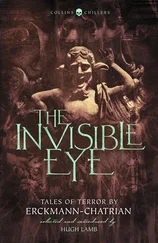He stirred as though from sleep. “I can hear nothing, nothing at all. And what about you? Do you hear anything?”
“No, nothing,” I answered.
He rubbed his ear. “Well then, it must be a hallucination.”
He began to feel about in his pockets, produced some tobacco, and set it down. Then he extracted a handkerchief and laid that down, too. Next he stroked with his fingers the space between his nose and beard, then passed his hand over his beard, and finally said, “Didn’t you say you could hear footsteps?”
“When did I say that?”
“When? Just a little while ago you said it.”
“And didn’t you answer that there was not a sound, nor the slightest suspicion of a sound?”
“So I said,” he replied, “and so I am still inclined to think. But if you were to tell me now that you can hear something, I should not contradict you.”
“Then you did hear something?”
“No, I didn’t,” he answered.
“Very well,” I said, “let’s return to our previous subject. What were we talking about before?”
“I swear, I don’t remember.”
“Does what you say count so little to you,” I asked, “that you don’t even try to remember it?”
“On the contrary.”
“Why ‘on the contrary’?”
“Because talk between two men of Israel is important, just as songs and hymns are; when you try to repeat them, the tune is never the same. Listen, I have just had an idea. I shall take Gemulah to the village of Atruz.”
“To Atruz? Why?”
“Atruz is the name for Atrot Gad, which is in the territory of Gad, and Gemulah is of the tribe of Gad. She will breathe the odor of her own land and recover her health. I shall never forget how glad she was of my presence when Gadi Ben Ge’im was about to snatch her and I anticipated him and seized her first. I would give the whole world only to hear Gemulah laugh again as she laughed at that moment. But now let me ask you about that doctor, not Dr. Greifenbach, but Dr. Ginat. Everything you have told me about him pleases me. Our sages of blessed memory have said, ‘Who is wise? He who knows his place.’ If it were not wrong to add to their words, I should continue, ‘when others do not know it.’ At any rate, I am surprised that you live with him in the same house and have not come to know him. Is he old or young? How do you like his books? You have made me curious about matters I have not given any thought to. Why is this?”
I said, “See how many of our savants have been given high positions, and the journalists hang on to what they say and make them into worldwide celebrities, yet we ignore them. But this great scholar has no post, no articles are written in his praise; yet we wonder at him and try to know more about him. Even you, Mr. Gamzu, have undertaken to read his books in your second or third incarnation, and already in this one he arouses your curiosity.”
Suddenly the colors began to change in Gamzu’s face, until at last all color left it, and there remained only a pale cast that gradually darkened, leaving his features like formless clay. Within that clay without form, I read a kind of horrified amazement. Contemplating it, I was so shocked that my hair stood on end, for never in my life had I seen a living man so completely divest himself of his own likeness. Gamzu took hold of my hand and said, “What’s the matter?”
I sat speechless. When I withdrew my hand from his, he did not even notice. “What happened to you?” I asked.
Roused from his trance, he smiled in an embarrassed fashion, waved his hand and said, “Idiot that I am, I’ve been fooled by my senses.”
“What is your answer, then?” I asked.
“I don’t know what you are referring to,” he replied.
“To the suggestion of the nursing home.”
He waved his hand again. “My mind is not on that now.”
“And when will you put your mind to it?”
“Not now, at any rate.”
I began to describe to Gamzu how much he would benefit if he sent his wife to the nursing home. “It would certainly be good for Gemulah to be there, and you too, Mr. Gamzu, would take new heart; then perhaps you would go on your travels again and discover new hidden treasures. These days, it is as if the earth had opened up and brought forth all that the first ages of man stored away. Has not Ginat discovered things that were concealed for thousands of years, the Edo language and the Enamite Hymns? But why should I mention Ginat? Haven’t you yourself discovered ancient treasures that were unknown to us?”
Gamzu looked at me, but his ears were inclined elsewhere. Sometimes he turned them in the direction of the door, sometimes toward the window, and betweentimes toward the wall. I was irritated with him. “What a brain you have, Reb Gabriel. It is not enough that you listen simultaneously to what the door, the window and the wall are saying to one another; you even take note of every word spoken by a mere man like me.”
Gamzu stared at me. “What did you say?”
“I didn’t say anything,” I replied.
“I was convinced that I heard people speaking.”
In my annoyance I answered, “If so, tell me in what language they spoke. Was it in Edo, or Enam?”
Gamzu realized that I was angry. In a broken voice he said, “Believe it or not, they spoke that very language.”
“What language?”
“The language that Gemulah used to speak to her father, the language they made up to amuse themselves. My nerves are in such a state that I believe I hear things impossible to hear; and I am not far from saying that what I hear sounds like Gemulah’s voice.”
I sat quiet, making no reply; for what indeed should I say to a man whose spirit has been broken by his troubles and who seeks to console himself with that which gave him pleasure in the days when he enjoyed peace of mind? Gamzu’s blood had drained away from his face; only his ears seemed to be alive. He sat there and hearkened with those ears which were all that was left to him of his whole motionless being. In the end he waved his hand in dismissal and said, “It is all mere fancy.” He smiled with embarrassment, adding, “When a man’s imagination gets the better of him, the merest shadow of a wall seems like a substantial thing. What is the time? It is time for me to go back home. I am worried that the garment I put down before Gemulah’s bed may have dried up by now. In the Land of Israel even the moon gives off more heat than the sun in other countries.”
He stood up, then sat down again. Seated, he stared straight ahead and muttered sorrowfully to himself, “And a word was secretly brought to me, and mine ear received a whisper thereof.”
“You are sad,” I said.
He smiled. “It is not I who am sad. Those words were spoken by Job. He was the sad one.”
I surveyed him and tried to think of what I could say. I felt in my pocket, like a man who has been searching in the recesses of his heart and ends by rummaging through his possessions. In so doing I brought out a picture postcard that had reached me from Greifenbach and his wife. I looked at it and saw depicted there a kind of moon shape resting on a roof. Gamzu took out some paper and tobacco, and rolled himself a cigarette. He licked the edges of the paper and put the cigarette between his lips and lit it. “Won’t you smoke?” he asked. “Let me roll you a cigarette.”
“Don’t trouble, friend,” I said, and taking out a pack of cigarettes, I lit one for myself.
We sat smoking together; the smoke of the cigarettes rose in the air, and our conversation came to a halt. I looked at the smoke and began to reflect in silence. If Gamzu gets up to leave, I said to myself, I shall not tell him to sit down again; and if he goes, I shall not call him back. When he has left, I shall make my bed and lie down. And God willing, tomorrow I shall write a letter to Gerhard and Gerda saying, “Your house is being well looked after.” As for my own home, I am not worried, for after the thieves broke in I had strong new locks made.
Читать дальше












